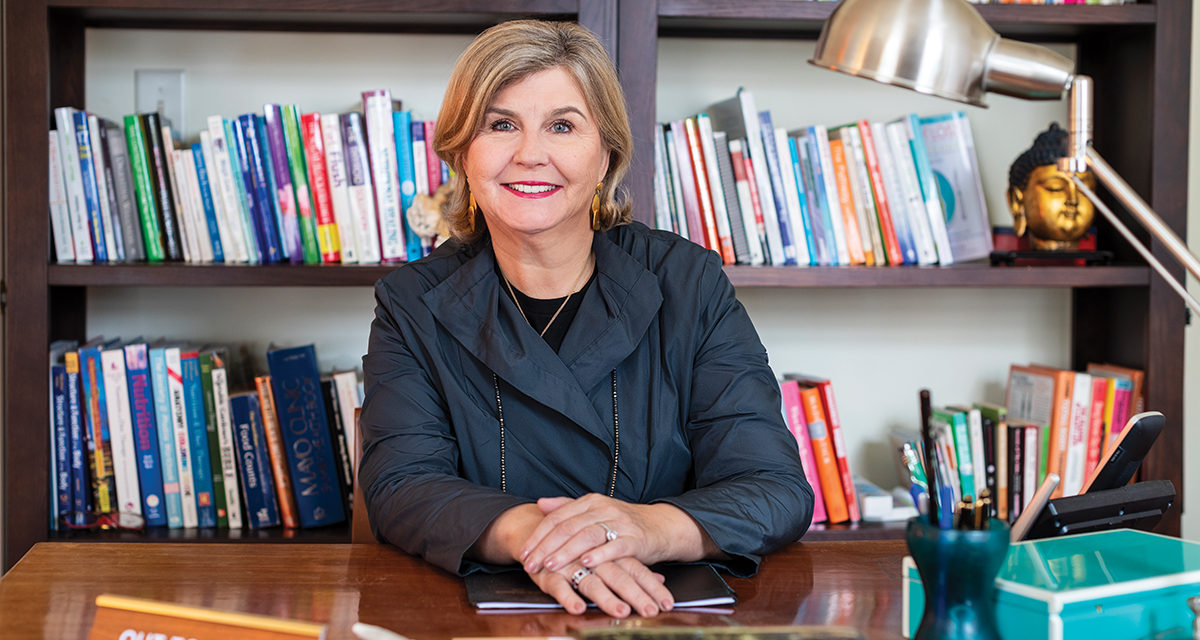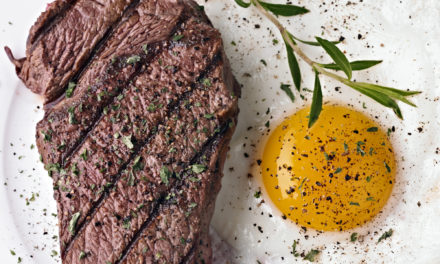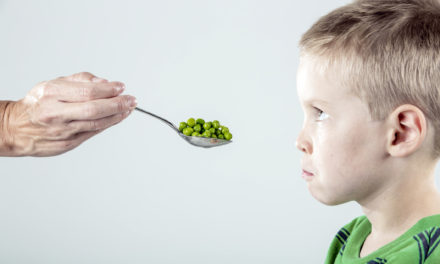After beating ovarian cancer, Veronique Cardon made a huge career shift to avoid burnout, helping people use their minds to change their bodies.
Last year, Veronique Cardon was busy helping people lose weight with her CogniDiet program when she got a surprising phone call. She’d been honored with the 2019 Rising Star Award by the annual New Jersey Immigrant Entrepreneur Awards. “Someone nominated me without telling me!” says Cardon.
The recognition validated a long string of difficult choices Cardon made over the past two decades. She’s taken a professional journey from working as a big pharma executive to earning a master’s degree in holistic nutrition and conducting a clinical trial to prove that the weight loss program she developed boasted a 95 percent success rate. Along the way, she beat cancer and overcame severe burnout. Though she may be a rising star, Cardon is no overnight success.
Lessons Learned the Hard Way
Cardon learned how to get healthy, first and foremost, from her own experience. At 42, she was diagnosed with ovarian cancer. “I was very lucky—they caught it early, but I wasn’t really paying attention [to my health], and I didn’t take action as soon as
I should have,” says Cardon.
This was the early 2000s, and she was still building her career in the pharmaceutical industry. The long hours and high-pressure environment distracted her from listening to her body. Looking back, there were signs missed. “I was having problems with my period. I was losing weight without trying, which I know from working at a drug company is a sign you shouldn’t ignore,” she recalls.
It was a dramatic health event, but Cardon fully recovered. After surgery to remove the tumor, she went back to work only 6 weeks later; her medical team advised her to take 3 months off to recover. “You would think that a health scare like ovarian cancer would be a wake-up call, but it took me years to learn the lessons from it and change my stressful lifestyle,” she says.
In the back of her mind, however, she was turning over what happened to her and why she refused to listen to her body—a concept that would later become central to her work as a wellness entrepreneur.
Eventually, it clicked. “Cancer taught me to be more attuned and respectful to my body, looking at my body as an instrument,” she says. But it would take another major health upset for her to get serious about changing her own habits and creating a better life for herself and others.
The idea was to improve fitness and social and emotional health and to combat obesity. But to do it all while having fun, so it’s almost like maintaining a healthy weight is a positive side effect.
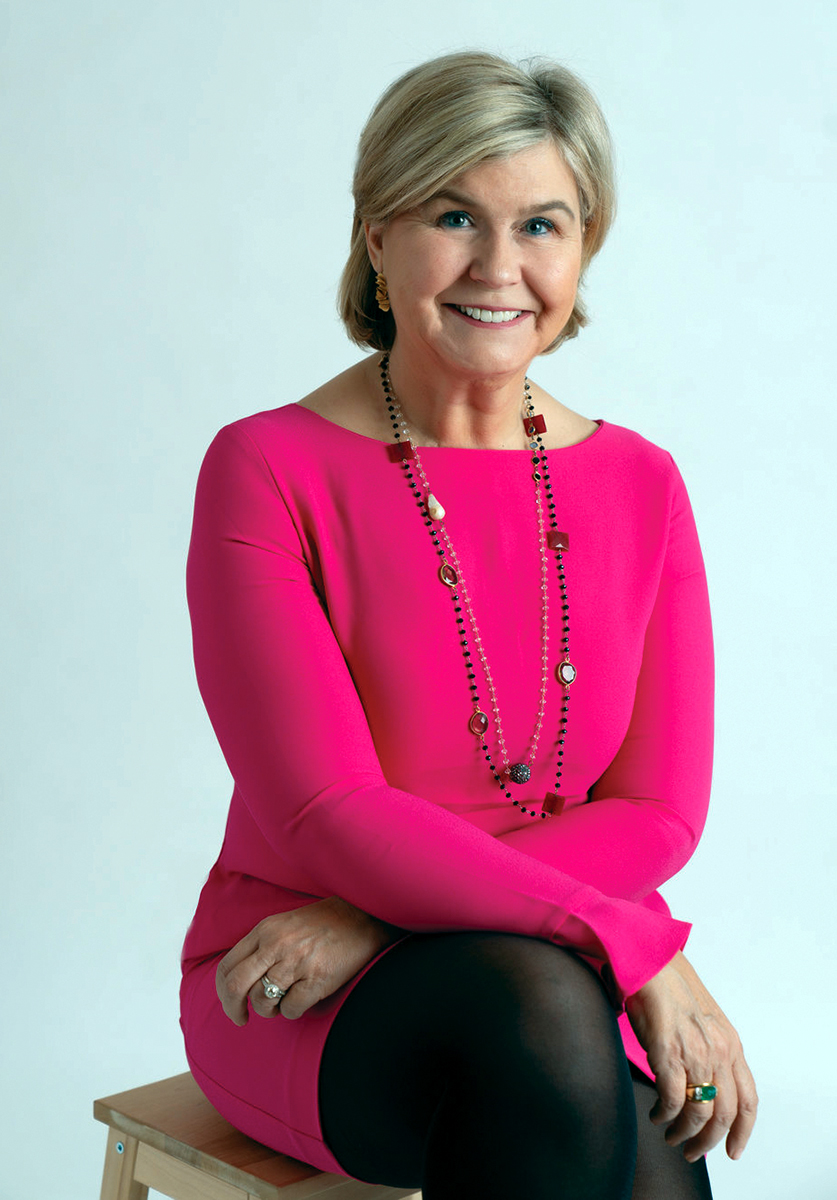
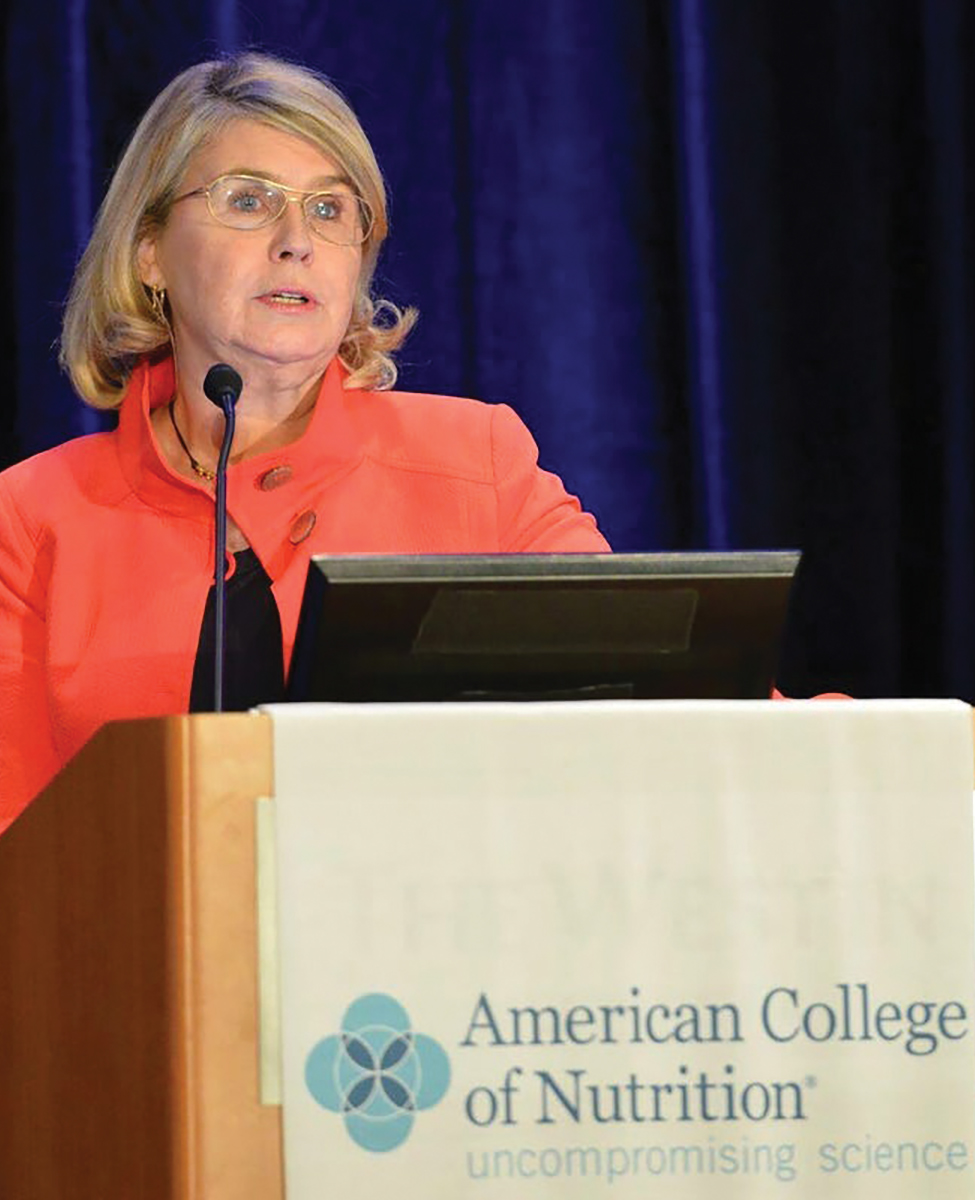
Brain Burnout
By 2004, Cardon had taken a more serious interest in nutrition. In fact, in addition to her full-time job, she started studying for her master’s degree in holistic nutrition. Work was as demanding and stressful as ever, and by 2006 she’d reached a breaking point. “I had major brain burnout,” says Cardon. And it was serious. Panic attacks and depression completely sidelined her. She took a 3-month leave from work. “I had pushed myself so hard, I couldn’t write, I couldn’t read, I couldn’t drive,” she says. Even everyday tasks seemed impossible. “I was like a wilted flower at home,” she says.
Cardon didn’t wallow in her situation. She applied the same determination she’d always shown at work to getting well. “I got treatment and medication,” she says. But she didn’t stop there. She also took up running and meditation. “I said to myself, Veronique, you had ovarian cancer and now you broke your brain. You have to get your act together!” Gradually, she began losing weight, eventually dropping 30 pounds, and feeling better than ever.
She became interested in neuroplasticity—the idea that the brain can change, rewiring itself at any stage of life. It was at this time that she started to live by the philosophy that shapes her business today: Well-being begins in the brain, with your thoughts. She believes the cultivation of mindful awareness through a meditation practice was key to her recovery.
“Ultimately, it was the best thing that happened to me in my life because it forced me to change. It made me more resilient, stronger,” she says.
Cardon had always had an inkling she would start her own business one day. Her entrepreneurial nature helped her distinguish herself in her career, and she’d long wondered what she could accomplish if she were her own boss.
After surviving cancer and then emerging from her severe burnout better than she was before, her business brainstorming became centered on one question: How can I help others become healthier? She realized this seed of an idea must have been germinating under the level of her conscious awareness for a long time. “Sometimes you have a vision, and you take steps very intuitively,” she says. “You don’t realize why you’re doing something when you’re doing it.”
One such step Cardon took was leaving big pharma, taking roles at smaller companies instead.
She sought out start-ups in particular because she knew there would be much to learn about entrepreneurship and launching a new business that way. The same thing happened when she decided to earn a master’s in nutrition. Without knowing exactly how, she had a hunch the knowledge, skills, and relationships she picked up would benefit her future projects.
Cardon says the idea that entrepreneurs must take a flying leap into the unknown just isn’t true for everyone. “I was the breadwinner for two young girls, and I couldn’t put their security at risk,” says Cardon. There would be consequences not only for herself but also for her family if her business experiments failed. So, she was patient, pivoting a bit at a time, until she knew she could launch her business with as little risk as possible.
“You’ve heard of slow food—I call it slow entrepreneurship.”
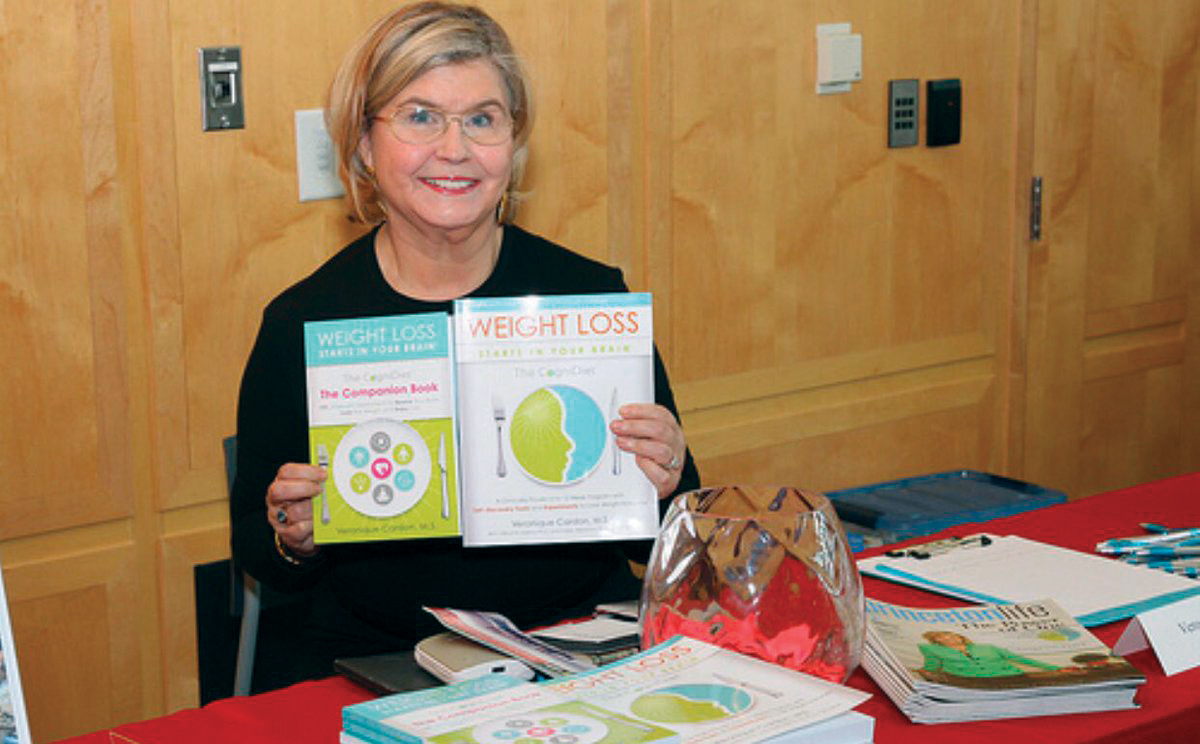
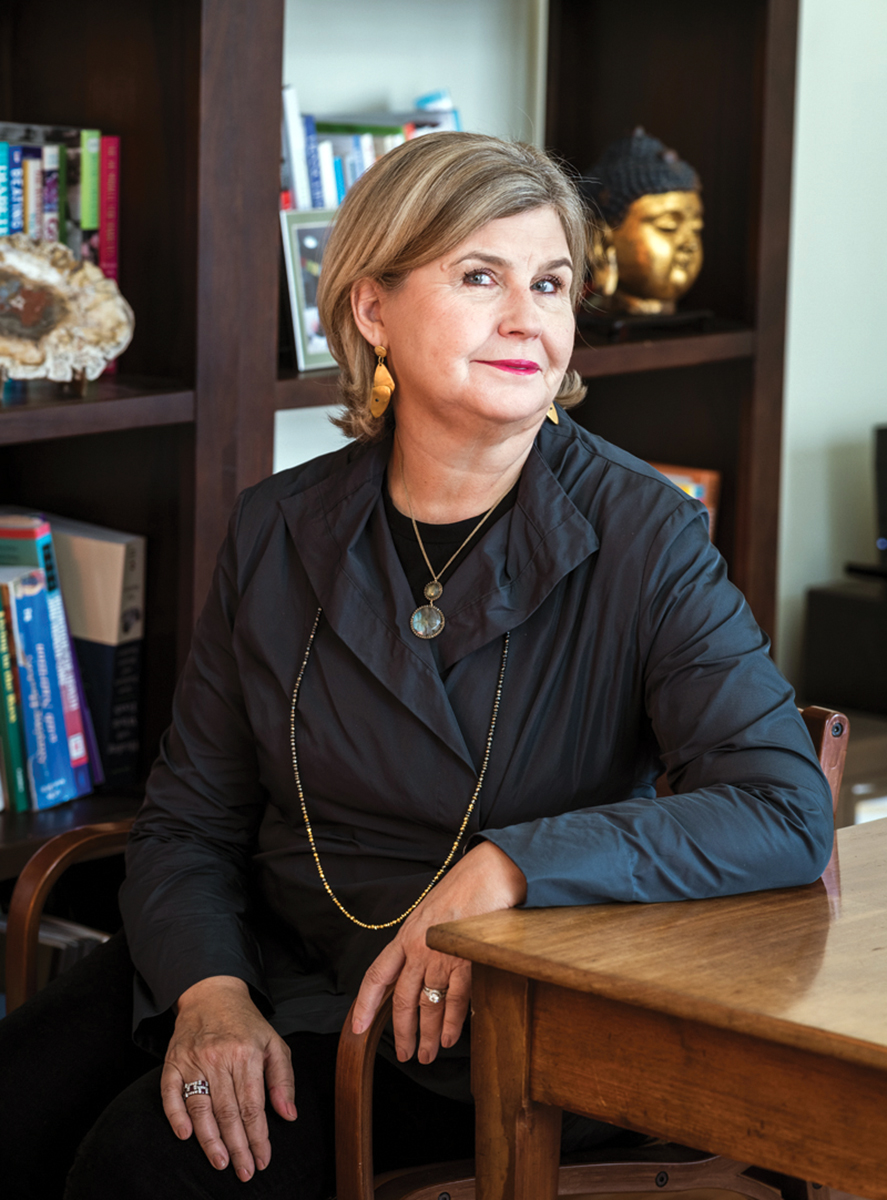
Sugar Mountains
Experiments and food experiences are important tools of the CogniDiet. Here’s one example of the way Cardon helps her clients build nutrition IQ:
• Choose a bag of chips, candy, or any favorite processed junk food.
• Read the label, and write down the total number of grams of carbohydrates in a serving, and subtract the grams of fiber. This is the net carbohydrate count. Net carbohydrates equal sugar.
• Take out a bag of sugar. A teaspoon of sugar contains 4 grams. If your number is 20 grams net carbohydrates, use a measuring spoon to place 5 tsp of sugar on a plate.
Rethinking Food and Weight
Cardon’s program, The CogniDiet, has little in common with other weight loss plans. As part of her preparation to launch her business, Cardon studied Cognitive Behavioral Therapy (CBT), an effective method of behavior change that focuses on a person’s thoughts, feelings, and actions. Cardon earned a certificate from The Beck Institute in the field of CBT and weight loss.
This knowledge informed her work; CBT is what the “Cogni” in CogniDiet refers to. The program’s tagline, “Weight loss starts in your brain,” is more than a slogan. The bedrock of Cardon’s approach is mindful eating and body awareness. Her clients engage in exercises like eating alone, training their attention on each individual bite of food, noticing what they learn.
She asks them to do experiments like eating a croissant with jam and orange juice one morning and then recording their hunger and cravings for the rest of the day. The second part of this exercise involves trying a protein-rich breakfast on another day and recording hunger levels and cravings after that. It’s all part of the process of rewiring the brain to respond favorably to the nutrient-dense foods that provide satiation and nourishment, creating new thoughts around food and eating.
“What many of us are doing wrong when we try to lose weight is that we cut calories too drastically. We’re starving ourselves, and that never works,” she says. Instead, Cardon asks clients to keep a list of all their favorite healthy foods and focus on enjoying those.
While the CogniDiet is different in many ways from other plans, there are certain guidelines that will be familiar to all dieters everywhere. Cardon asks clients to minimize processed foods and anything with sugar and refined carbohydrates. She wants them to focus on vegetables and lean proteins—timeless weight loss advice shared across the vast majority of diets.
However, unlike plans that forbid entire food groups, Cardon knows perfect compliance isn’t possible or desirable for most people. “When it comes to sugar, for example, I say avoid, not eliminate. With my plan, no food is forbidden,” she says.
The Big Test
By 2016, Cardon felt like she’d perfected her program. She wanted the imprimatur of science, so she set out to conduct a clinical trial. Her approach all along had been scientific. She taught clients about biology and used well-studied CBT techniques and brain science to help them reset their habitual food thoughts and eating behaviors.
She recruited 40 women to participate in the trial and put them through her CogniDiet curriculum. The average age in the group was 56. The goal was to change their behavior so they made healthier choices and lost weight.
“I put my cohort in a difficult position. There’s no magic pill, no recipes, not even a focus on calories. It’s all about being more mindful and noticing how the food you eat makes you feel,” says Cardon.
The results were impressive. Participants lost an average of 12 pounds over 12 weeks. At a 6-month check-in, the group had lost an average of an additional 2 pounds. “After one year, they stabilized,” says Cardon. And body weight wasn’t the only health metric that improved: cholesterol and triglyceride numbers dropped as well.
Cardon presented her study at the American College of Nutrition in 2017, and she shared data from the 6-month follow up at the American Society for Nutrition in June 2018.
Immigration as Preparation
For Cardon, one of the most satisfying aspects of receiving the Rising Star award was that an association of immigrant business owners bestowed the honor. Cardon came to America from Belgium in 1995. “As an immigrant, you change your life when you move and you do it again when you start a business,” she says.
The immigrant experience is not homogenous. “I didn’t come on a boat,” Cardon says. She acknowledges that the obstacles she overcame are not equivalent to the life-or-death ordeals many immigrants face today. “But I did adapt to an entirely new culture when I was 36,” she says.
As an immigrant, Cardon learned to change the way she behaved and the way she lived to fit a new country. She thinks the experience helped prepare her for entrepreneurship, which also requires adapting to new situations. “Every time you get the courage to change something in your life, the next time you need to make a change is a little less hard,” she says. “Everything I’ve dreamed so far, I’ve achieved.”
The achievement she is most proud of has nothing to do with awards and everything to do with the lives she’s changed. Since launching CogniDiet in 2014, she’s helped more than 1,000 people lose weight.
It’s easy to assume that Cardon wishes she’d made the leap from employee to entrepreneur when she was younger. After all, when you picture someone changing careers and starting a new business, you probably aren’t seeing a 54-year-old in your mind’s eye. But Cardon has no regrets—she can see now the value of everything she learned on her long road from executive to the business owner.
It’s challenging to make such a radical shift at any age. “The brain doesn’t like change,” she says. “By the time I was in my mid-fifties, I realized it was now or never. I had equipped myself with enough skills and confidence that I don’t have any excuses anymore.”
She’s learned firsthand that it’s never too late to go after your dreams. In a way, launching a business is like losing weight, according to Cardon. “There’s always an excuse not to get started, always a reason to put it off,” she says.
“If you would have told me 10 years ago that I would help people lose weight, do a clinical trial, launch an online program,
and win an award, I don’t think I would have believed it,” she says.

